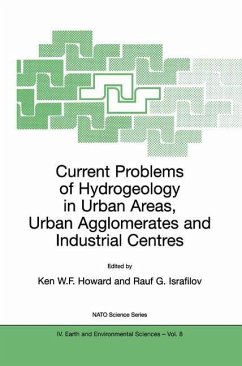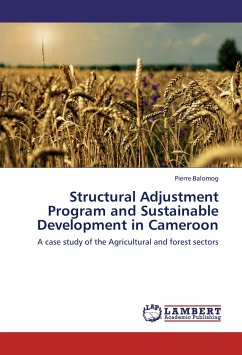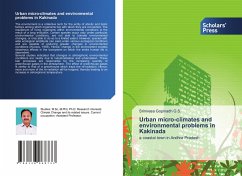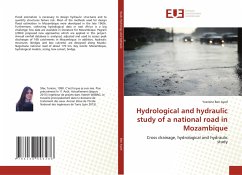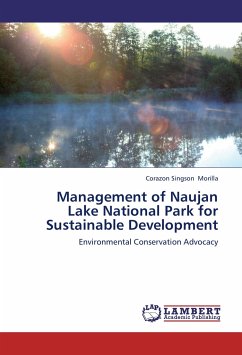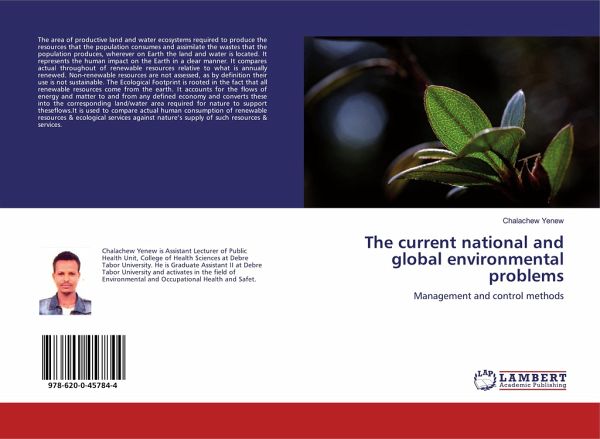
The current national and global environmental problems
Management and control methods
Versandkostenfrei!
Versandfertig in 1-2 Wochen
26,99 €
inkl. MwSt.

PAYBACK Punkte
13 °P sammeln!
The area of productive land and water ecosystems required to produce the resources that the population consumes and assimilate the wastes that the population produces, wherever on Earth the land and water is located. It represents the human impact on the Earth in a clear manner. It compares actual throughout of renewable resources relative to what is annually renewed. Non-renewable resources are not assessed, as by definition their use is not sustainable. The Ecological Footprint is rooted in the fact that all renewable resources come from the earth. It accounts for the flows of energy and mat...
The area of productive land and water ecosystems required to produce the resources that the population consumes and assimilate the wastes that the population produces, wherever on Earth the land and water is located. It represents the human impact on the Earth in a clear manner. It compares actual throughout of renewable resources relative to what is annually renewed. Non-renewable resources are not assessed, as by definition their use is not sustainable. The Ecological Footprint is rooted in the fact that all renewable resources come from the earth. It accounts for the flows of energy and matter to and from any defined economy and converts these into the corresponding land/water area required for nature to support theseflows.It is used to compare actual human consumption of renewable resources & ecological services against nature's supply of such resources & services.



